Elections 2024: India, Mexico, and onward to Europe
The end of a road in India or just a fork … Mexico back to the future … Hope and fear in Europe
Continuing our pledge at Andelman Unleashed to report and comment on every national election everywhere in the world, this week we have India, mopping up in Mexico … and onward to Europe.
A revolt in India
It was a stunning rebuke to Narendra Modi—who has ruled alone and all but unchallenged for his entire career, and as leader of all India for a decade—but as well an affirmation of India’s underlying strength as a democracy. The six-week-long election in the world's largest nation has left Modi no longer able to govern with the single handed impunity he had enjoyed. He had seemed poised to expand to the 400 seats he forecast would assure his grip over the nation's 545-seat Lok Sabha (Parliament).
Instead, for his third term in office, Modi has emerged without even a majority of his own, forced to rely on a coalition of parties each with its own priorities, interests, and personalities, forcing the prime minister to pick his way through the kind of political minefield that had long marked this nation’s history.
It's essential to plunge from the get-go into the numbers only just coming into focus with stunning clarity. This chart shows the two major coalitions. Modi's NDA shed a remarkable 67 seats (rather than picking up the 50 or so he'd expected).
This leaves him, even including his allies, with a slim 21-seat majority in the Lok Sabha. Without allies, he falls more than 30 seats short. But the opposition INDIA coalition has surged by a remarkable 115 seats. Its heart is the Congress Party whose leaders have been the Nehru-Gandhi family, who until the arrival of Modi and his BJP, have ruled India virtually from the creation of an independent, democratic nation. This time around, a gaggle of smaller parties found their influence fading still further. Indeed, 17 parties will have one seat, while seven will have two seats. And while the Congress-led coalition won 234 seats, only 99 of those will be held by the Congress Party itself—still nearly double its performance five years ago.
As Siddharth Varajaradan, one of the most astute observers of the Indian political scene observed on his SubStack page 'The India Cable' :
Modi Stripped of Majority, Limps Back With NDA Crutches; Congress and INDIA Have the Numbers to Harass BJP
Modi … will find that the political terrain inside and outside parliament is no longer going to be as tolerant of his authoritarianism, megalomania and Islamophobic bent as it has been so far. But that will still not prevent him from doubling down on his trademark tendencies. Indian democracy may have survived today but the fight to save it will have to go on.
As Naresh Fernandes, editor of the indispensable Scroll.in news empire, put it in his lead Editor's Note:
The audacity of hope: Indians have demonstrated that they will battle hard for the values of the Constitution.
Seldom has there been so much joy in the shadow of defeat. But as the results of the 2024 Lok Sabha elections began to trickle, the smiles and good cheer began to heat up an already sultry day. Not since the protests against the Citizenship Amendment Act in 2019 has India allowed itself what former US President Barack Obama described as the audacity of hope.
Of course, even though the Bharatiya Janata Party has fallen short of a majority, Narendra Modi has taken it close enough to the halfway mark to form the new government. However, in its enfeebled state, propped up by allies who know the precise cost of their support, the new BJP administration will be forced to temper its bluster and contain its malevolence against those it considers its enemies. Among those the BJP has considered its adversaries are independent journalists, several of whom have been jailed and prosecuted simply for doing their jobs.
This result will undoubtedly trigger a tectonic shift in the BJP. There is no telling how the pieces will fall. As long-suppressed aspirations in the Hindutva party shoot to the surface, perhaps even more hardline leaders will assume prominence. But as reports from the ground have pointed out, this mandate is a rejection of the illiberal agenda, both social and economic, that Prime Minister Narendra Modi has advanced over the past decade. By ignoring Modi’s provocations, Indian voter—especially the most marginalized—have decisively rallied to the defence of the Constitution.
The battle to reclaim the idea of an equitable India is far from being won. But there are many who dream of reinforcing the foundations of a Republic based on the values of justice, liberty, equality and fraternity. For now, India can breathe again.
Fernandes was referencing Modi's plan, if he approached the plateau of 400 seats in parliament of amending or rewriting in its entirety the Indian constitution to cement the control of India's Hindu majority over every aspect of the nation and its government, while eviscerating whatever rights and privileges remained for the countries 200 million Moslems. But India would not stand for this.
The nation's effervescent stock market initially reacted badly to Modi's crushing defeat at the polls.
As foreign investors headed for the exits, the Indian market posted its steepest one-day fall since the first days of the COVID lockdown four years ago. There was a rebound the next day as Modi's principal ally, a regional Hindu-based party, pledged its support for a coalition that would keep Modi as prime minister, if substantially weakened.
Incidentally, if you were wondering how stunning was the outcome, here's what four exit polls showed the night voting ended before official results were tabulated:
The low end for Modi's coalition wound up being 50 seats short of estimates, the high end 100 seats shy, while the Congress Party's vote came in nearly double the low estimate—as the the cartoon in the national daily The Hindu suggested:
But the fun is only just beginning. As Scroll.in reported:
First-time MPs symbolise hope
A young Jatav woman, the first Congress MP in Gujarat in a decade, and a jailed Kashmiri leader are among are the promising voices of resistance in Parliament.
The INDIA bloc’s significant gains in the 2024 election results declared on Tuesday pave the way for the entry of a new set of faces into Parliament. The reduced strength of the Bharatiya Janata Party will also result in a more vocal Opposition in the Lok Sabha.
While Narendra Modi is most likely to return as prime minister for a third straight term, experts say that Modi having to run a coalition government could mean a balanced polity that “allows the possibility of institutional regeneration”.
Or as columnist Pratap Bhanu Mehta observed in The Indian Express daily:
A Suffocating shadow has lifted, balance restored
At the very least, the result pricks the bubble of Prime Minister Modi’s authority. He made this election about himself. But today, he is just another politician, cut to size by the people.
A blowout in Mexico
No surprises in Mexico. As expected Claudia Sheinbaum was elected, overwhelmingly, the first woman and the first Jew to serve as the nation's president. Especially stunning, however, in this multi-tiered election was the election of women as governors of nearly half of the 32 Mexican states.
“I do not arrive alone. We all arrived,” she said in her victory speech, singling out “our mothers, our daughters and our granddaughters.”
But the reality is that the one individual she certainly arrived with is the outgoing, term-limited president Andrés Manuel López Obrador, who has been throughout her career her mentor and now her predecessor. And while AMLO, as he is affectionately known, says he'll be "retiring" to his ranch, few believe he will be giving up entirely his unchallenged control.
But now it is Sheinbaum who must govern. As Mexico City's leading daily El Universal (which dates to 1916) headlined:
Economy and migration, challenges for Sheinbaum's government
Experts say that to comply with debt reduction the next administration will be forced to cut spending steeply, in addition to dealing with tougher US policies.
Of course, that's just below a photo of President Biden announcing he’s planned on "Securing our borders."
Indeed, despite this somewhat incongruent makeup of El Universal's front page, Biden has sought to get off to a good start with the new president, as National Security Council director Jake Sullivan told a press 'gaggle' on board Air Force One to Paris three days after Mexicans voted:
The President [Biden] had a very constructive conversation with the President-elect. He believes that they see eye to eye on the issue and that we can continue our good, close cooperation on it.
And he also had the opportunity today to speak with President López Obrador, who, of course, is in office for another few months. They had a good, constructive conversation, and the President believes they see eye to eye as well. And he's, frankly, grateful for the support and partnership we've had from the Mexican government, and he expects that it will continue.
Unspoken amid all the concern over migration, however, is the other leading priority that many believe Sheinbaum may be ill-equipped to tackle. As columnist Belén Fernández observed in Al Jazeera:
Mexico’s election: A victory for organised crime
Under Claudia Sheinbaum’s presidency, organised crime will likely be calling the shots.
A pre-electoral spike in political killings is attributed primarily to cartels and other organised crime outfits conducting their own form of elections—if you will—by eliminating unfriendly candidates. After all, there is no time like the biggest election in Mexican history to show who will really be calling the shots in the coming years….
Back in 2019, Sheinbaum, the first female mayor of Mexico City, promised to eradicate violence against women. During her tenure, however, the femicide epidemic in the Mexican capital—and the rest of the country—continued to rage. Mexico currently sees at least 10 women and girls killed on a daily basis, with tens of thousands of women missing. The vast majority of femicides go unprosecuted.
Of course, the surge in femicides occurs within a general context of violence; in the first four and a half years of AMLO’s term, Mexico registered 160,594 homicides, while the estimated number of missing people has now surpassed 111,000—a figure AMLO has preferred to drastically lowball.
Back to the future in Europe
And so it begins. On Thursday, Europeans go to the ballot boxes for what, if the polls all seem to suggest, will be the single most seismic shift in the political, diplomatic and economic priorities of the 27-nation European Union. Some 360 million are eligible to vote—in most countries on Sunday, the final day, but as early as Thursday in the Netherlands and Estonia (through Sunday), with Ireland following on Friday; the Czech Republic on Friday and Saturday; Latvia, Malta, Slovakia, Italy on Saturday, and everywhere else on Sunday. They will be deciding who, but particularly which parties, to send to the 720-member European Parliament.
As David Carretta and Christian Spillmann reported in their indispensable SubStack La Matinale Européenne (European Morning):
A majority is 361 votes. The projections give between 180 and 183 elected representatives to the [center-right] European People's Party, between 131 and 138 to the group of Socialists and Democrats, between 83 and 86 to the Liberals of Renew, between 74 and 78 to the group of Conservatives and Reformists [nationalist right or ECR], between 66 and 72 to the Identity and Democracy [IDD] group (far right), between 54 and 58 to the Greens and between 41 and 46 to The Left group (radical left). A final group, the Unregistered, brings together those without family, the excluded, the unclassifiable. They will be between 73 and 78 and will be very popular for the formation of groups. The results will tell on Sunday whether these estimates were correct.
No group can lead alone, and no majority is possible without the [moderate] conservatives of the European People's Party [EPP]. However, several majorities are possible. There is the traditional one, considered to be the pro-European majority, made up of the EPP, the Socialists, and the liberals of Renew. They are the [current, outgoing] majority. Their renewal is desired by most of the leaders of the 27 EU countries. Most but not all.
Hungarian Prime Minister Viktor Orban dreams of a union of all the rights: EPP, ECR, ID and the pariah parties including his [Hungarian] movement Fidesz, excluded from the EPP and condemned, for the moment, to sit with the Unregistered. This [pipedream] is considered improbable, even impossible. The head of the Italian government Giorgia Meloni, for her part, is calculating possible alliances to send “the left” back into opposition. The outgoing President of the European Commission, the German conservative Ursula von der Leyen, is following closely and is personally involved in these political negotiations, because they will be decisive for her reappointment or dismissal….
While Orban's dream of a majority led by the far right may be a pipedream for most, in fact he has one other arrow in his quiver. On July 1, Orban and Hungary assume for six months the leadership of Europe. Each of the 27 nations has that honor in a rotation. This time, at this epiphanal moment, it's Hungary's turn at the podium.
And then there's von der Leyen [UvdL]. As Carretta and Spillmann continue:
Her management of the Commission was openly criticized by several commissioners, and she disappointed a number of governments with her political errors, her untimely announcements, and her inability to form a team with the President of the Council, the liberal Charles Michel. and the High Representative for external action [Europe's foreign minister], the Socialist Josep Borrell.
In the end, however, it may all come down to what Orban believes, as he told the French weekly Le Point:
“Everything will depend on the ability of Marine le Pen and Giorgia Meloni to cooperate. If they manage to work together within a single group or a coalition, they will be a force for Europe."
Into this maelstrom, meanwhile, has flown Joe Biden. Arriving July 5 to commemorate the 80th anniversary of the D-Day landing in Normandy that brought an end to Naziism (if not Fascism) in Europe, he has a packed schedule:
Two speeches in Normandy, meetings with Ukraine's president Volodymyr Zelenski and France's Emmanuel Macron. And then, on the eve of the big final day of the EU elections, Macron is throwing Biden a state dinner at the Élysée presidential palace.
But, as the NSC’s Jake Sullivan observed, he's staying out of the political fray entirely:
The President obviously doesn't wade into or speak to ongoing elections in Europe, including the upcoming European elections, which are set, in fact, for this Sunday. But he's made no bones about the fact that he believes that anti-democratic forces—forces that are retrograde, forces that want to take us back, strip away rights—have a darker vision for democracy than he has. That's not his view. That's not what he sees as the right path forward for the United States or for the Transatlantic Alliance.
But he's not going to comment on the election or on a specific party or on a specific candidate because European voters will have to make those decisions for themselves.
Still, there are no end of issues on the table. And then, a week later, with the ink barely dry on the European voting results, Biden will be back—this time in Italy for the annual summit of the G-7 industrial nations. And who's hosting? Giorgia Meloni—who'll either be riding a high of electoral triumph or figuring another path forward.
Needless to say, Andelman Unleashed and its partners will be back this weekend and next week to chronicle it all and to take stock. Stand by.





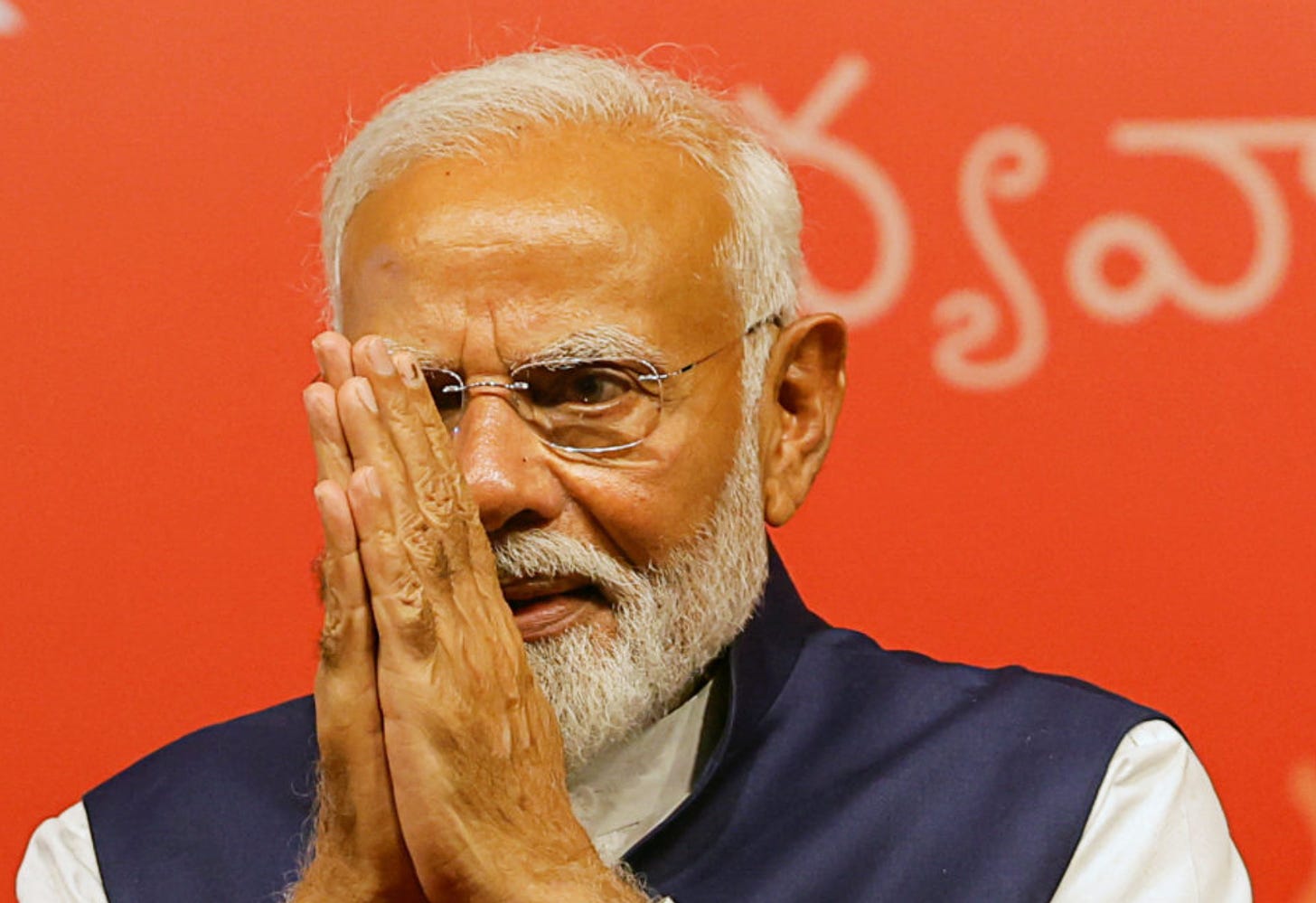
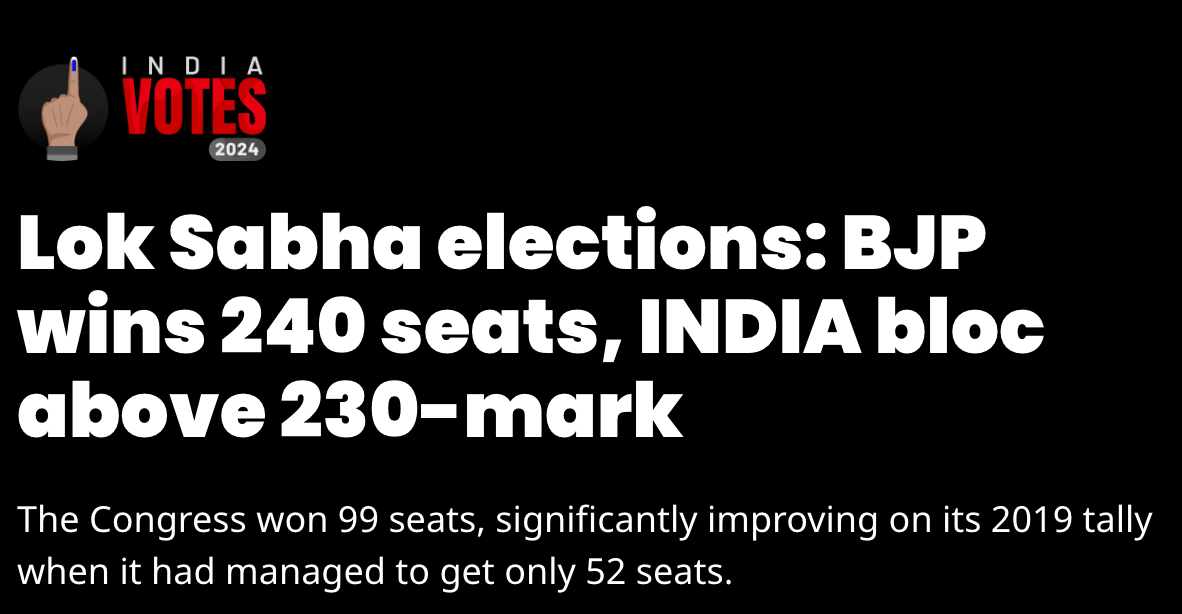
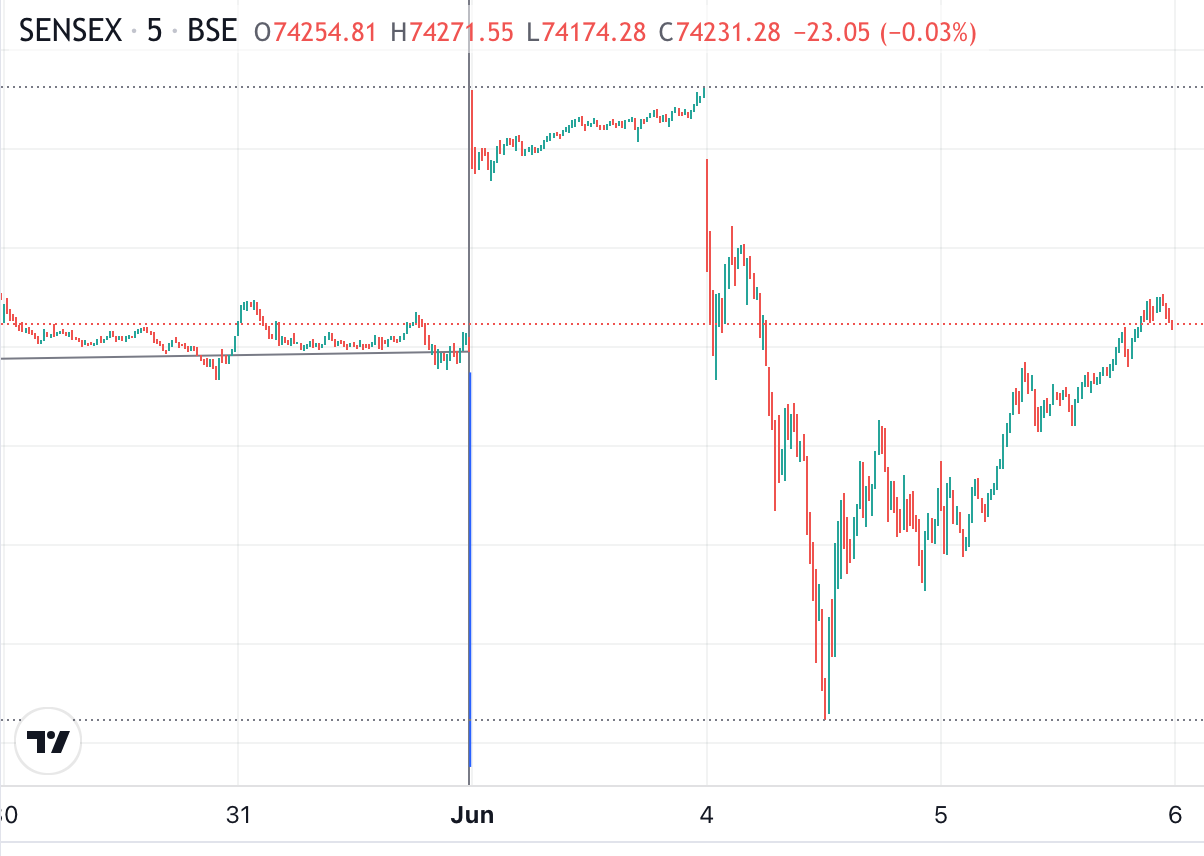
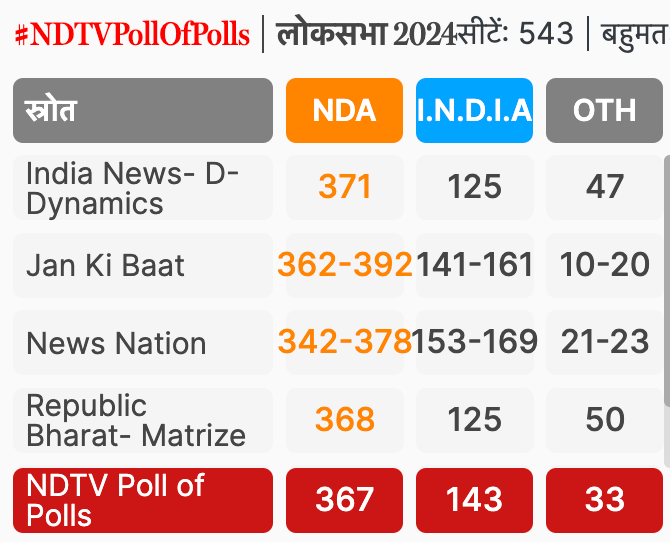
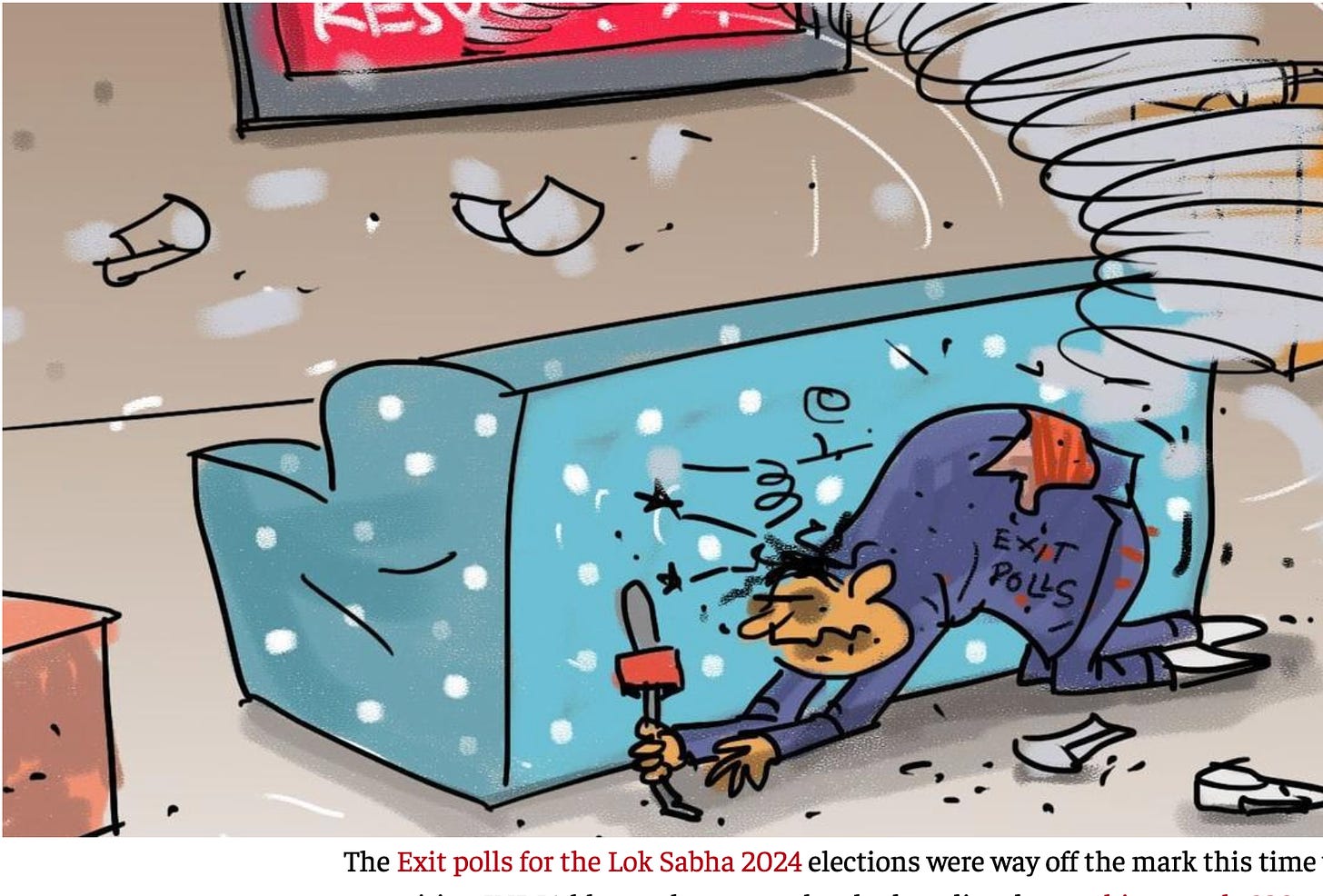

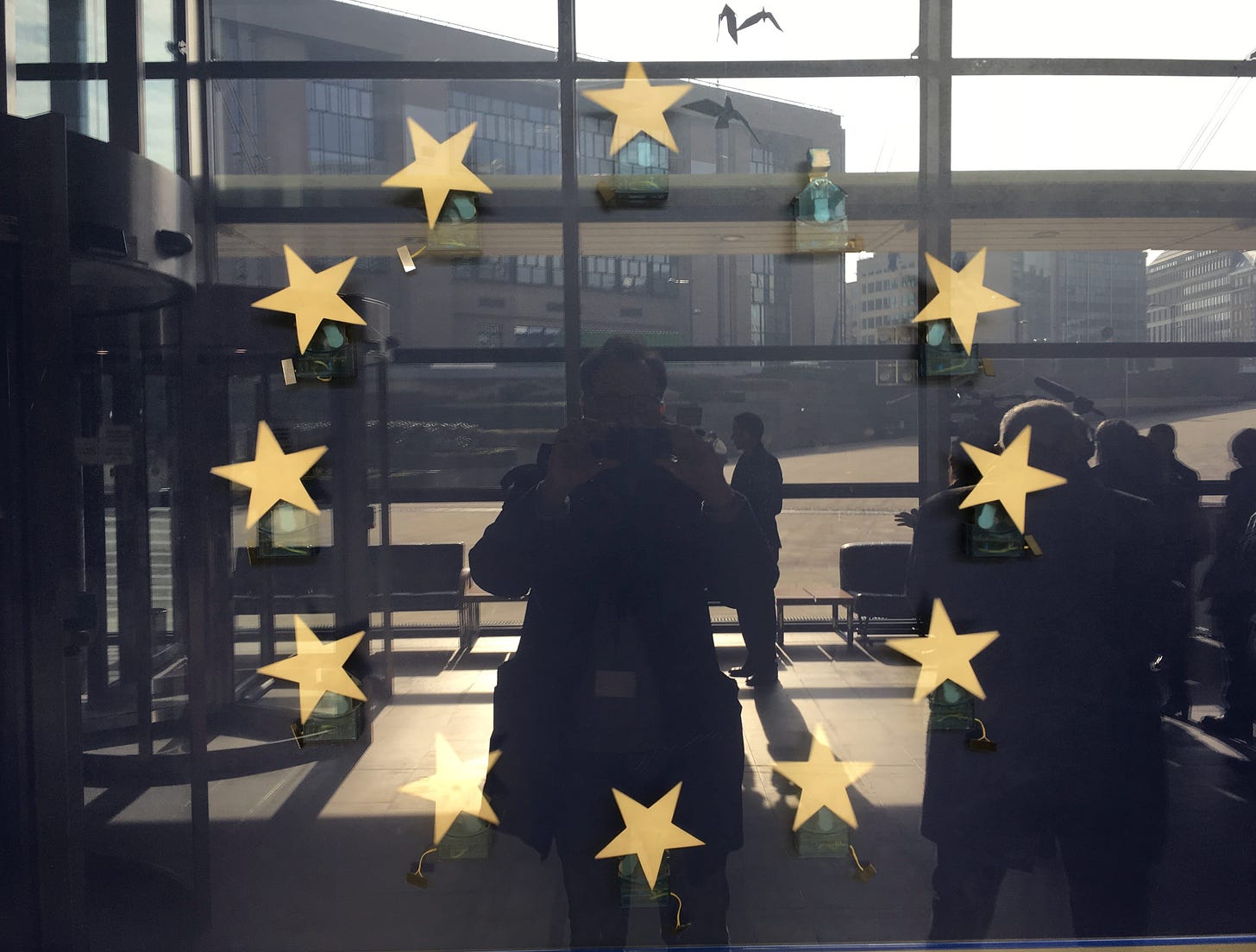
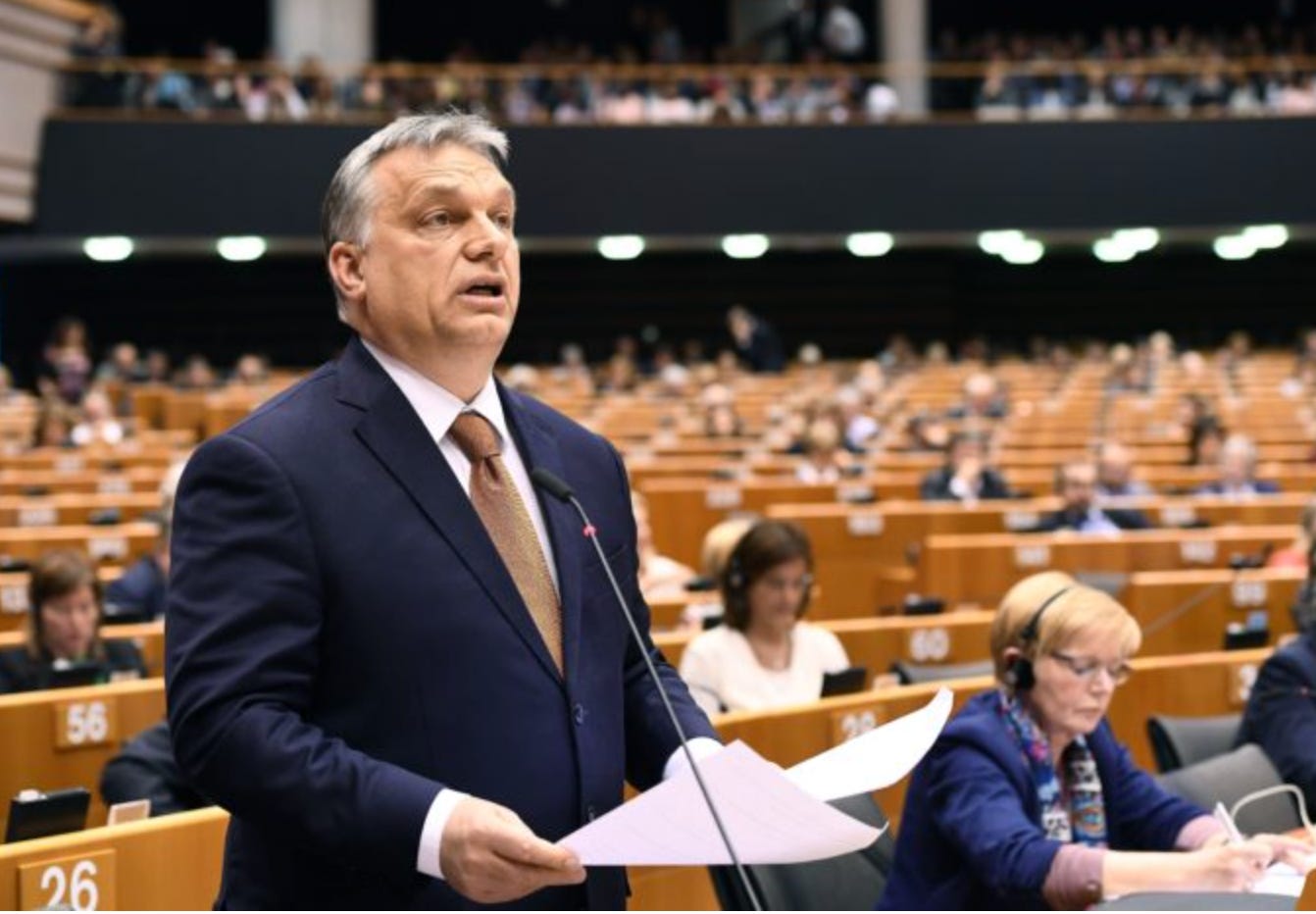

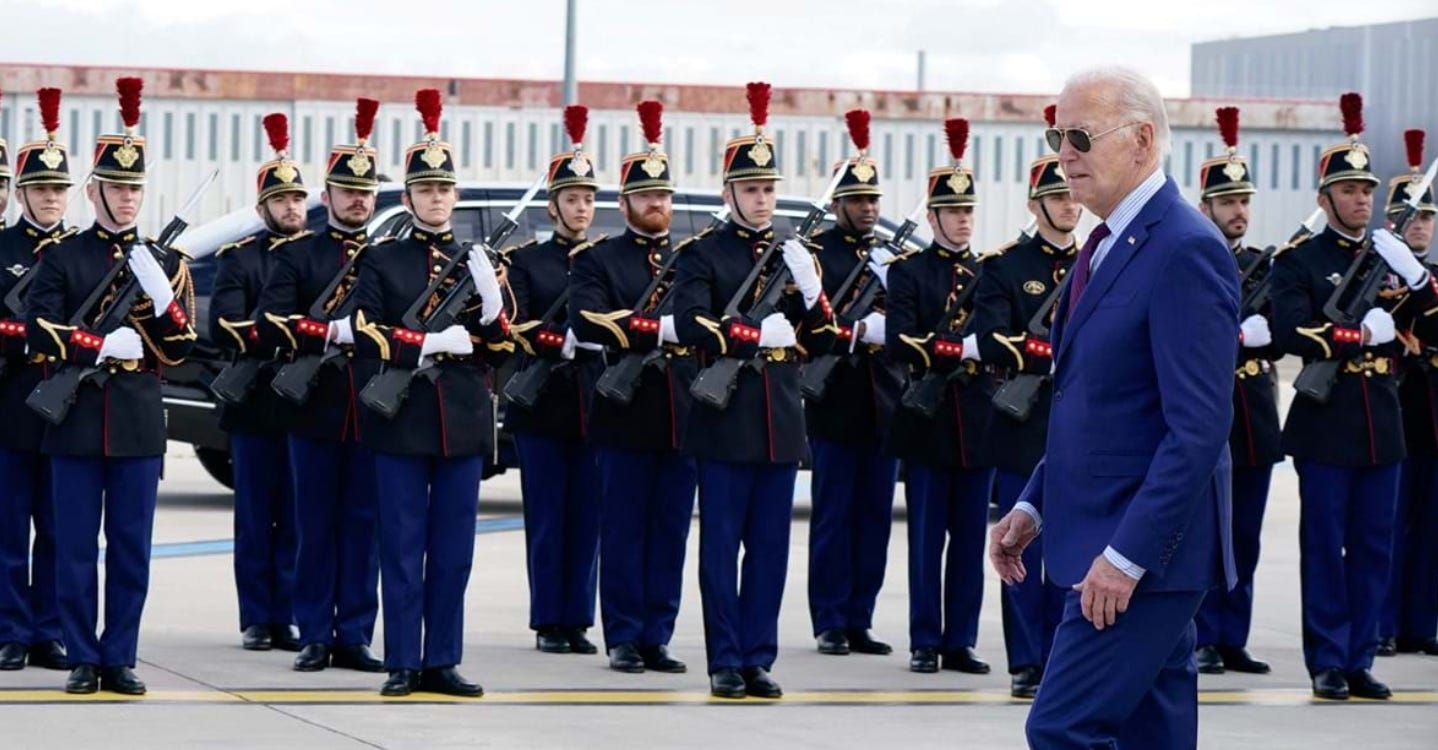

I can’t tell you how much this means to me !
Thanks ever so much !!
I am a journalist who has grown more fretful as democracy has dimmed worldwide. Andelman's take on one of the biggest news days in global politics in recent months -- the elections in India and Mexico, and Biden's visit to an increasingly right-wing Europe -- was strikingly distilled and penetrative. I'd read all the mainstream media on these events, but Andelman's take was lucid and told me things I hadn't yet seen. Really good stuff.